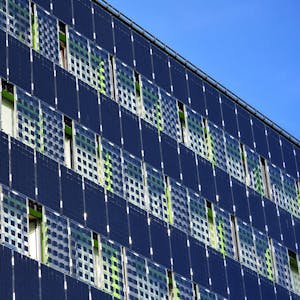The Energy Management for Real Estate course by Politecnico di Milano delves into the pivotal role of Energy Managers in optimizing energy consumption and promoting energy efficiency in buildings. Participants will gain a comprehensive understanding of the energy framework, building energy audits, and digital energy modeling for buildings.
This 4-week course covers a wide range of topics, including the fundamentals of building physics and technical systems, energy efficiency of building envelopes and technical systems, renewable energy sources, practical applications of energy digital models, and retrofitting existing buildings. Participants will also engage in case studies to apply their acquired knowledge in real-world scenarios.
Certificate Available ✔
Get Started / More Info
The Energy Management for Real Estate course comprises 4 modules that cover the role of an energy manager, energy framework and building fundamentals, energy management in buildings, and practical applications of digital energy models and simulations in real estate.
The first module introduces the role and main skills of an energy manager, laying the foundation for understanding the pivotal duties of this position.
This module provides insights into the structure of the energy sector at national and international levels, energy commodity supply and markets, heat transfer, energy balance of buildings, building technical systems, and includes a quiz for reinforcing learning.
Participants will delve into energy audits, energy efficiency of building envelopes and technical systems, and the integration of renewable energy sources in buildings during this module.
The final module explores practical applications such as energy digital models and simulations, retrofitting existing buildings, and engaging in the EDDIE Project, offering hands-on experience in real estate energy management.
Introduction to Environmental Science is a comprehensive course covering various environmental science topics at an introductory level, ultimately considering the...
Introduction to Complexity Science offers a comprehensive understanding of complex systems, from pandemic transmission to traffic flow. Gain insight into resilient,...
Planning with Climate Change in Mind is a comprehensive course focusing on regional and sectoral climate impacts across the United States. It equips learners with...
Wind resources for renewable energies provides the necessary knowledge of atmospheric and fluid dynamics to quantify local or regional wind resources, assess turbines,...